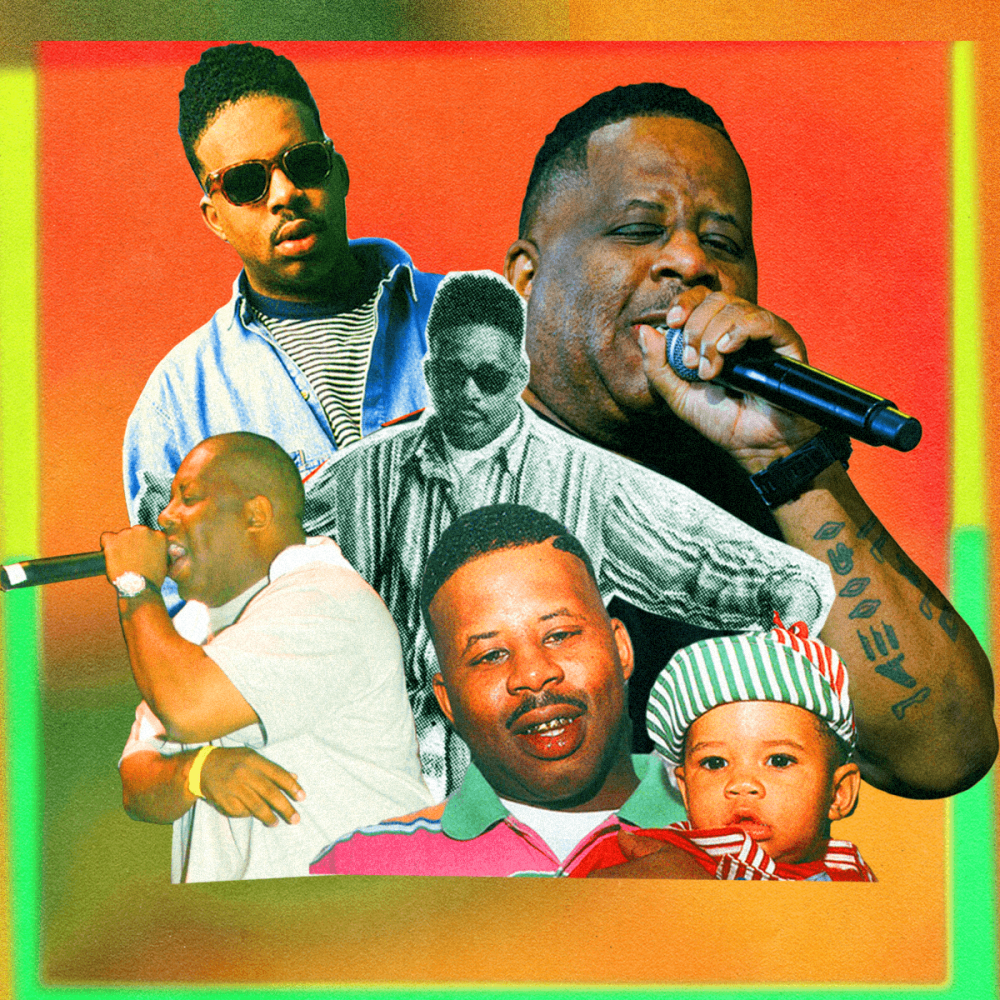Art by Evan Solano
Paul Thompson pulled more stunts than Action Jackson.
If you trace enough artists’ careers back to their beginnings, you find that even the greatest MCs usually go through a formative period where they imitate their influences and stumble around in the dark looking for a style of their own. That’s not the case with Grand Puba.
The native of New Rochelle, New York has been around practically since hip-hop’s beginnings, and though you may dig through crates and hard drives, there’s no record of the man born William Dixon III in anything other than supreme control. His uniquely elastic voice, equally suited to dispensing complex political thought and careening through comic vignettes, has always had the perfect bounce, the trademark lilt, the rhythm so precise it feels like a prized loop uncovered and flipped into eternity.
Best known as the architect of the seminal group Brand Nubian (which also featured Sadat X, Lord Jamar, and DJ Alamo, and whose 1990 debut, One For All, is one of the truly indispensable rap LPs of its era), Puba is also celebrated for his solo work. His earliest recorded material flaunts an already-expert command both in the booth and behind the boards. As a producer, Puba fused innumerable musical styles and tones, making coherent a sprawling collage of sounds from his youth.
Growing up between his mother’s place in New Rochelle’s Hartley Houses projects and his father’s home in Harlem, he was always circling hip-hop’s early epicenter. “New Rochelle is connected to the north side of the Bronx,” he explains, filled with immigrants and first-generation New Yorkers with Caribbean, Jamaican, and Barbadian heritage.
The specificity with which Puba can rattle off borough-by-borough differences is unsurprising, given the granular nature of his most memorable verses. He’s just as persuasive when he talks about the interconnectedness that has made hip-hop such a universal language: “Broadway goes all the way to Yonkers.”
And so, whether on Masters of Ceremony’s Dynamite (1988), One For All, his 1992 solo debut, Reel to Reel, or beyond, he blends serious Afrocentricism with askance tales of dates gone wrong, barbs for other rappers with odes to the Black women who form the spine of their communities. It’s an ambitious act of synthesis—yet in his voice, it seems not only elegant, but inevitable.
This month, Puba is being honored—alongside Kool G Rap—by the Paid In Full Foundation, which aims to support the brilliant artists whose contributions to hip-hop were not properly recognized or compensated in their time. He spoke with POW via phone from his home in New York about his recording process’ development over time, the moments when he could tell he was making record executives nervous, and how your life can pivot on an offhand remark made in a boxing gym.

